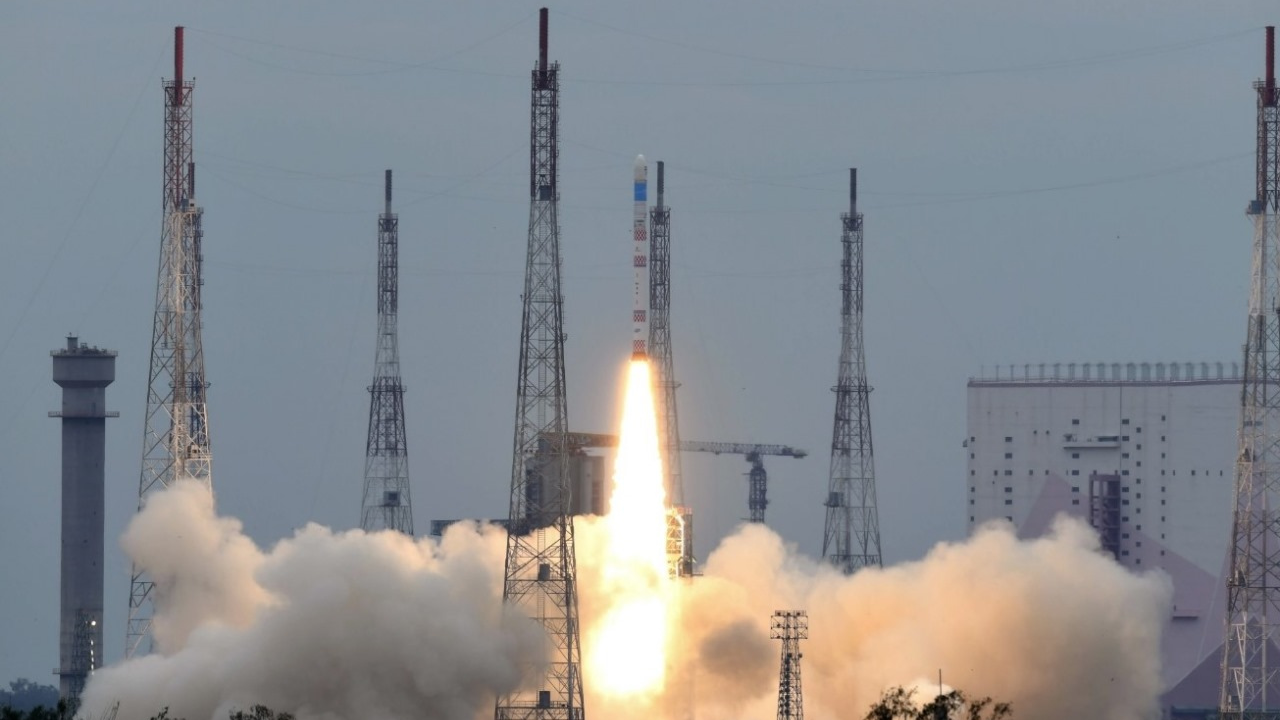BENGALURU: Isro Wednesday said the third and final demonstration flight of its Small Satellite Launch Vehicle (SSLV) is scheduled for 9.17am on Aug 15. The rocket will launch Isro’s latest Earth Observation Satellite (EOS-08). From environmental monitoring to disaster management and technological demonstrations, EOS-08, weighing approximately 175.5kg, is set to contribute valuable data and insights to various scientific and practical fields.
Isro plans to handover SSLV to the private sector for production once it proves its capability through the demonstration flights. In July last year, the Indian National Space Promotion and Authorisation Centre (IN-SPACe) had even issued an expression of interest (EoI) for transfer of technology (ToT) of SSLV to Indian private players.
The EOS-08, Isro said: “Boasts three state-of-the-art payloads: an Electro Optical Infrared Payload (EOIR), a Global Navigation Satellite System-Reflectometry payload (GNSS-R), and a SiC UV Dosimeter,” Isro said.
The EOIR payload is designed to capture both day and night images in Mid-Wave IR and Long-Wave IR bands, enabling applications ranging from disaster monitoring to fire detection and volcanic activity observation.
The GNSS-R payload demonstrates innovative remote sensing capabilities for ocean surface wind analysis, soil moisture assessment, and flood detection. The SiC UV Dosimeter will play a crucial role in monitoring UV irradiance for the upcoming Gaganyaan mission, India’s first crewed spaceflight programme.
“Set to operate in a circular Low Earth Orbit (LEO) at an altitude of 475km, EOS-08 incorporates several technological advancements. These include an Integrated Avionics system known as the Communication, Baseband, Storage, and Positioning (CBSP) package, which combines multiple functions into a single, efficient unit capable of supporting up to 400Gb of data storage,” Isro said.
The satellite showcases miniaturised design elements, such as advanced antenna pointing mechanisms and a phased array antenna, enhancing its communication capabilities. “A flexible solar panel system and innovative thermal management solutions using materials like Germanium Black Kapton contribute to improved power generation and heat dissipation,” Isro added.
EOS-08 also features several indigenously developed components, including solar cell fabrication processes and a nano star-sensor for microsat applications. The mission’s commitment to innovation, Isro said, extends to its X-band data transmission system for improved performance.
With its planned one-year mission life, EOS-08 is poised to provide critical data that will enhance the understanding of Earth’s systems and support a wide range of applications beneficial to society and scientific research.
Isro plans to handover SSLV to the private sector for production once it proves its capability through the demonstration flights. In July last year, the Indian National Space Promotion and Authorisation Centre (IN-SPACe) had even issued an expression of interest (EoI) for transfer of technology (ToT) of SSLV to Indian private players.
The EOS-08, Isro said: “Boasts three state-of-the-art payloads: an Electro Optical Infrared Payload (EOIR), a Global Navigation Satellite System-Reflectometry payload (GNSS-R), and a SiC UV Dosimeter,” Isro said.
The EOIR payload is designed to capture both day and night images in Mid-Wave IR and Long-Wave IR bands, enabling applications ranging from disaster monitoring to fire detection and volcanic activity observation.
The GNSS-R payload demonstrates innovative remote sensing capabilities for ocean surface wind analysis, soil moisture assessment, and flood detection. The SiC UV Dosimeter will play a crucial role in monitoring UV irradiance for the upcoming Gaganyaan mission, India’s first crewed spaceflight programme.
“Set to operate in a circular Low Earth Orbit (LEO) at an altitude of 475km, EOS-08 incorporates several technological advancements. These include an Integrated Avionics system known as the Communication, Baseband, Storage, and Positioning (CBSP) package, which combines multiple functions into a single, efficient unit capable of supporting up to 400Gb of data storage,” Isro said.
The satellite showcases miniaturised design elements, such as advanced antenna pointing mechanisms and a phased array antenna, enhancing its communication capabilities. “A flexible solar panel system and innovative thermal management solutions using materials like Germanium Black Kapton contribute to improved power generation and heat dissipation,” Isro added.
EOS-08 also features several indigenously developed components, including solar cell fabrication processes and a nano star-sensor for microsat applications. The mission’s commitment to innovation, Isro said, extends to its X-band data transmission system for improved performance.
With its planned one-year mission life, EOS-08 is poised to provide critical data that will enhance the understanding of Earth’s systems and support a wide range of applications beneficial to society and scientific research.

